Description
ABSTRACT
Adjournment of Proceedings Sine Die Pending Appeal: Has the Decision of the Supreme Court in Alioke V Oye Changed the Law?
Sir Isaac U. Obi*
Adjournment of court proceedings, sine die, pending appeal has been one of how the appellate courts maintain and preserve their superiority over lower courts in Nigeria. Once an appeal has been properly entered before an appellate court and the lower court is formally notified of the same, the lower court is automatically stripped of its jurisdiction on that matter until the appellate court concludes the matter. In other words, the lower court has no discretion to exercise thenceforth but to adjourn proceedings in deference to the appellate court. Recently, it has been argued that the decision in Alioke v Oye has changed the legal position in this
regard. It is argued that an appeal does not operate as a stay of proceedings and that until the appellate court makes a definite order compelling the lower court to adjourn the matter, the lower court retains its discretion whether or not to adjourn the matter sine die, pending appeal, irrespective of the fact that an appeal has been entered. In this article, the author critically analyses the decision of the Supreme Court of Nigeria in the case of Alioke v Oye and arrives at the clear conclusion that the law has NOT changed in respect of adjournment of court proceedings, sine die, pending appeal. Once the lower court is put on notice of the pendency of a valid appeal duly entered, it is stripped of jurisdiction to continue to hear the matter, until the appeal lodged to the appellate court is concluded with judgment on the appeal.
Keywords: Adjournment of Proceedings, Sine Die, Alioke v Oye, Supreme Court, Nigeria.
INTRODUCTION
Judicial precedent is the doctrine by which lower courts are bound in law to follow the decisions of superior courts, except where the facts differ. The decisions of the superior courts usually follow appeals from the lower courts’ decisions, and such appeals flow from filing the Notice of Appeal to entering the appeal.
The law draws a conspicuous line between filing or bringing an appeal and entering an appeal. An appeal is filed or brought when the Notice of Appeal is filed at the court registry whose decision is challenged (lower court). An appeal is entered when the registry of the appellate court receives the compilation of the relevant records of proceedings and processes at the lower court and an appeal number assigned to the Records of Appeal so received.1 When an appeal is filed or brought, the lower court has the discretion of whether or not to stay proceedings before a party makes such an application.
*MCArb, FIMC. Partner at Alliance Law Firm, Lagos.
- Court of Appeal Rules 2020, or 4 rl 10.

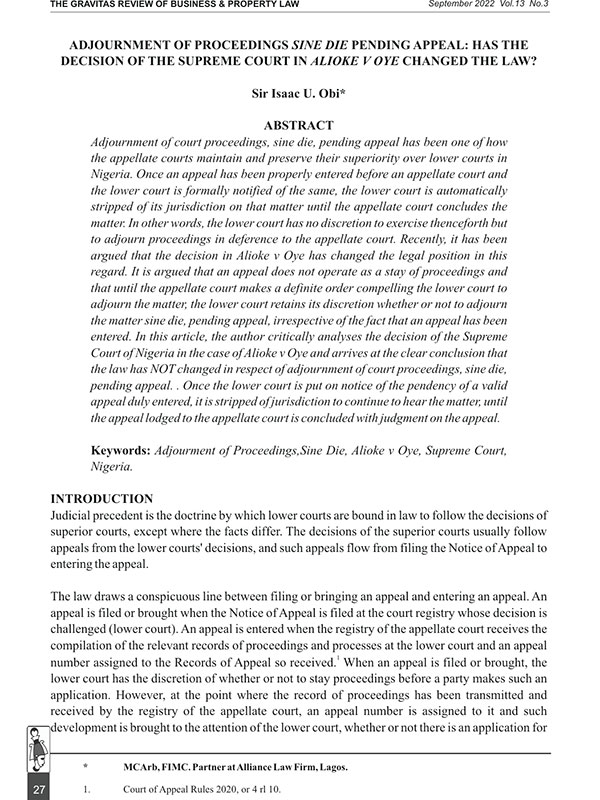
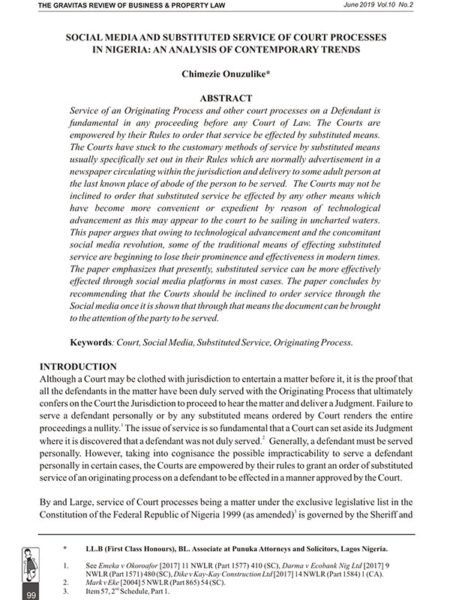
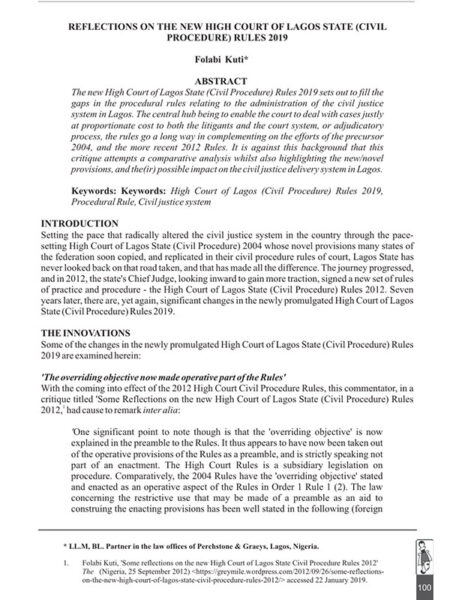
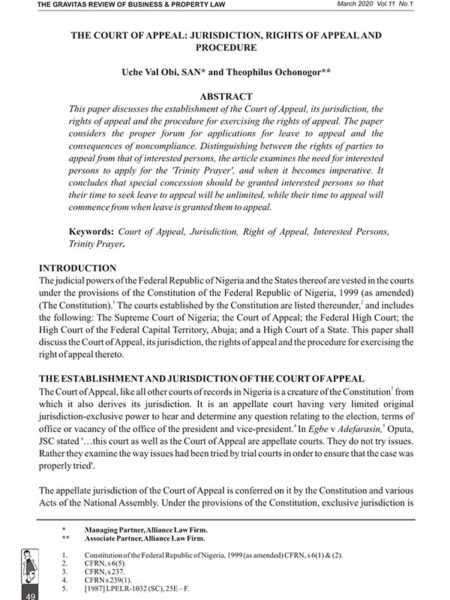
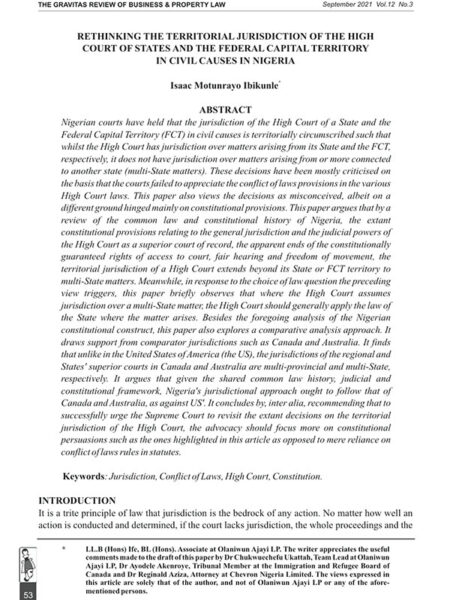


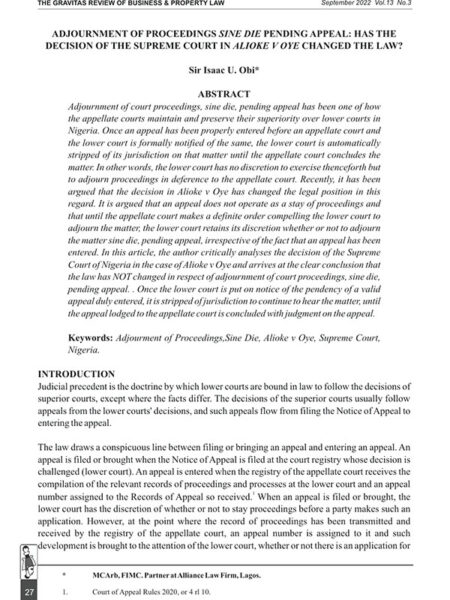
Reviews
There are no reviews yet.